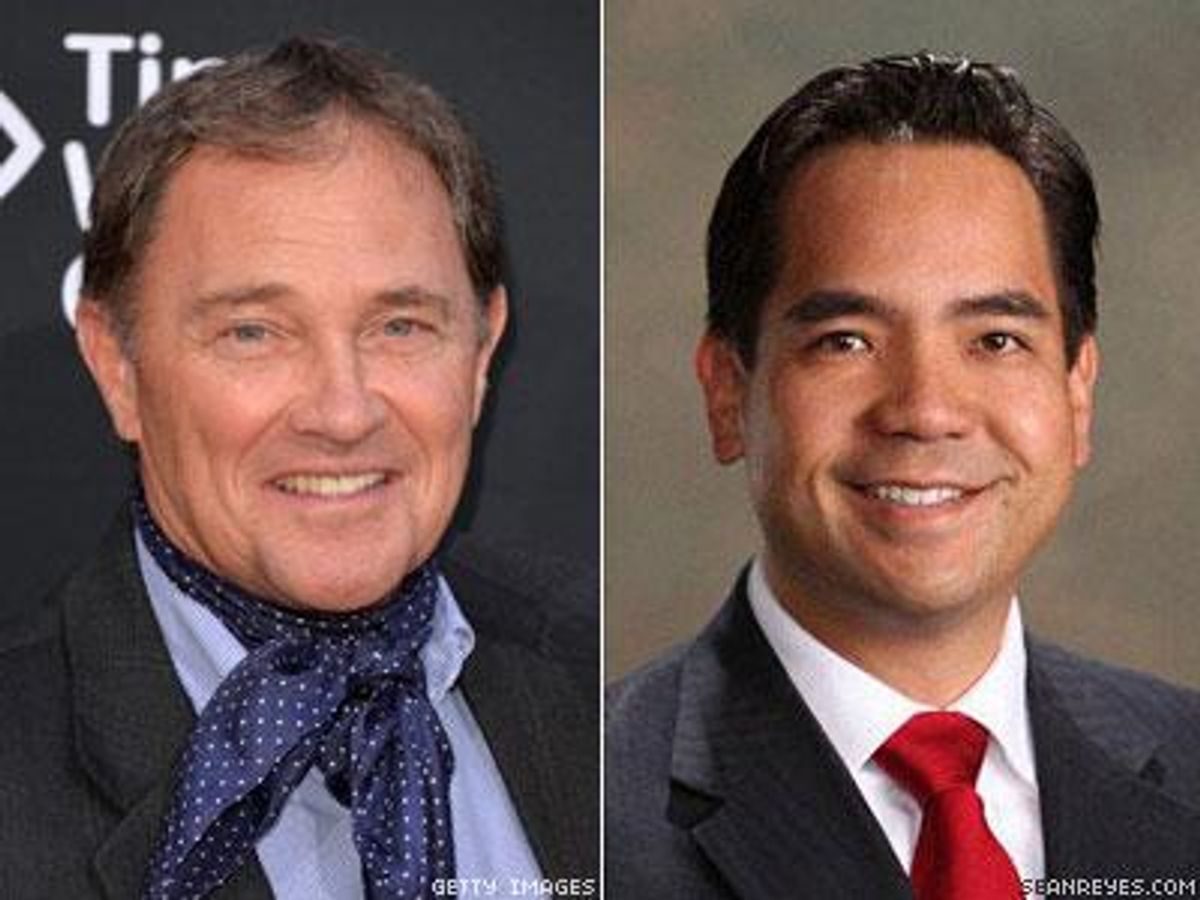Utah officials have formally asked the U.S. Supreme Court to determine whether the state's constitutional ban on same-sex marriage violates the U.S. Constitution, reports the Associated Press.
Attorneys representing Utah Republican governor Gary Herbert and attorney general Sean Reyes are appealing last month's ruling from the 10th Circuit Court of Appeals that agreed with a lower court ruling finding that Utah's marriage ban violates the U.S. Constitution's guarantees of equal protection and due process.
Today's filing indicates that the state will not seek a hearing from the full 10th Circuit, known as an en banc ruling, which can serve as an intermediate step between a decision from the Appeals Court and petitioning the Supreme Court. Last month's 10th Circuit ruling came from a three-judge panel.
The state's deadline to request an en banc decision is today, explains Shannon Minter, legal director at the National Center for Lesbian Rights, one of the groups representing the same-sex couples who initially filed suit. By asking the Supreme Court to consider the case -- a process known as writ of certiorari -- the state is essentially forfeiting its chance to seek an additional ruling from the 10th Circuit, Minter confirms to The Advocate.
The Supreme Court, however, is under no obligation to consider the case, known as Kitchen v. Herbert. Similarly, there is no predetermined timeline for when the Supreme Court might announce whether it will hear the case. While most observers expect the high court to take up the issue of marriage equality within the next few years, the Associated Press notes that the court has a history of declining to consider cases without divergent rulings from lower courts. In the Kitchen case, a federal trial judge and the 10th Circuit both ruled that the state's ban on same-sex marriage is unconstitutional. If the Supreme Court declines Utah's request to hear the case, those lower rulings will stand, definitively declaring Utah's marriage law unconstitutional and striking down the voter-approved law.
The case, filed on behalf of three same-sex couples, led to more than 1,000 same-sex couples getting married in December and January after a U.S. District Court ruled against the ban and before the U.S. Supreme Court halted the issuance of licenses.
LGBT organizations responded quickly to today's news, generally stressing the importance of deciding the issue of marriage equality definitively -- whether in the Kitchen case or one of the more than 70 other cases seeking marriage equality currently working their way through state and federal courts.
"The Supreme Court may or may not take up this case," said Equality Utah in a statement. "In the meantime loving committed couples, their families, and their children remain in limbo. Governor Herbert has the power to give resolution to this matter today by doing what other republican governors are doing all across the nation -- don't appeal the decision and let the marriages stand."
Similarly, NCLR's Minter stressed the urgency of clarifying the legal status of an estimated 1,300 same-sex couples who wed in the month-long window where marriage equality was legal in Utah.
"We want this case to move forward to a final resolution as quickly as possible," said Minter in a statement. "Every day, loving and committed same-sex couples and their families in Utah are being harmed by the continued enforcement of measures that deny them equal dignity, security and protection -- even though both the federal district court and the 10th Circuit Court of Appeals have held they violate fundamental constitutional guarantees. We look forward to the day every family in Utah has the freedom to marry, and we will work hard to make that happen as soon as possible."



















































































Fans thirsting over Chris Colfer's sexy new muscles for Coachella